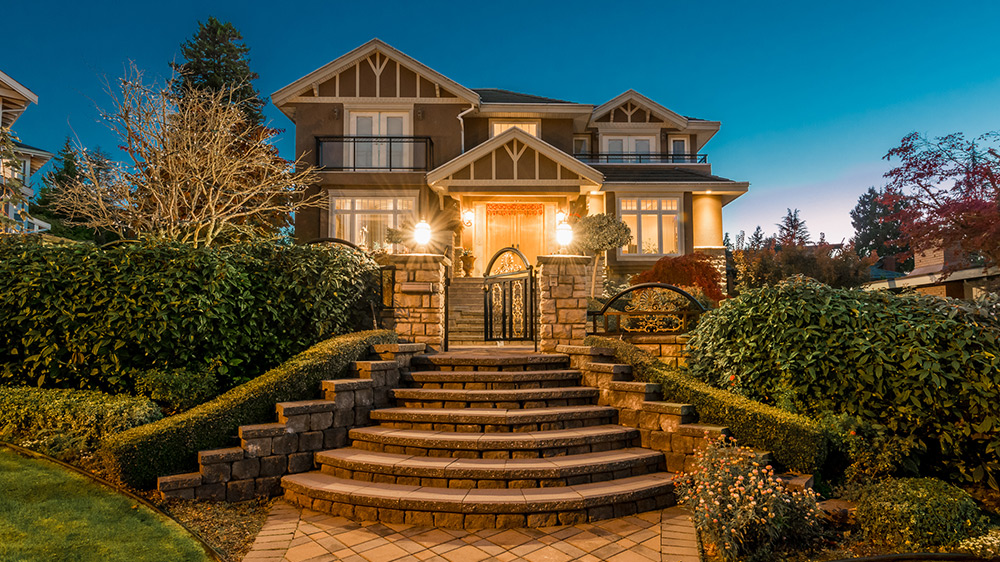When listing your home for sale, the goal is to generate interest and capture the attention of discerning buyers. Beyond high-quality photos and a competitive listing price, a property description can go a long way in attracting potential homeowners. To make homes stand out, agents and sellers pepper their listings with attention-grabbing buzzwords — and understandably so. “When you’re writing for marketing materials, you’re going to have to use these kind of descriptors, because otherwise the copy is bland,” explains Bruce Withey, marketing director of the Steven Cohen Team of Keller Williams Realty in Boston, MA.
So, how can you effectively use these ubiquitous popular real estate terms? For one, be wary of overuse. “A lot of agents will be inspired by other people’s descriptions, which means there’s a lot of carry-over from one property description to the other,” says real estate agent Aaron Floyd. “Buyers are seeing the same words used over and over again.” Second, be wary of the misuse of certain descriptive words. When these labels are used ad nauseam or incorrectly, they can actually hurt your home’s chance at a sale.
Below are four terms that won’t necessarily help sell your home — and some expert insight on how to make your listing more powerful.
1. Gorgeous
This word garners a knowing laugh from most real estate agents when asked if it pops up frequently. Opinions differ on how glaring it is in a description, but everyone agrees on one thing: It’s better to be more specific. Marcus Lee of Climb Real Estate in San Francisco, CA, believes that while a word like gorgeous is just a word, it’s all about using it in the proper context. “If you have a gorgeous backyard in a place like San Francisco where you’re looking at smaller lots and most people don’t have a backyard, then having a gorgeous backyard is going to stand out.”
But that doesn’t mean gorgeous should be tacked on to just anything. Lauren Brown of Jeff Cook Real Estate in Charleston, SC, says the term doesn’t quite cut it in an age where buyers can see so much for themselves. “Back in the day, you could only put one picture and a description, so really, the description of the house was extremely important,” says Brown. “Today, you can list multiple photos, 3-D tours, and video, so buyers are able to determine for themselves if it’s gorgeous.”
So, how to avoid this word trap? Melissa Potter, listing coordinator at the same agency, says she writes a listing description as if she herself were “walking through the home.” She finds this approach prevents her from throwing around catchwords like gorgeous or stunning and helps her be more specific in descriptions — which ultimately stands out to buyers more than the blanket use of popular terms.
2. Luxury
Of course, there are definitely properties that deserve an adjective like luxury. Who wouldn’t want a home that advertises such a lifestyle? However, this is an example of a shiny word that has just about lost its luster. Melissa Stanley, a Chicago, IL–based agent with Niche Realty, describes luxury and related words as being stretched too thin. “They’ll call a property a penthouse just because it’s on the top floor of a three-story building,” she says.
Another example? Luxury kitchen. “Just because you’ve put in stainless steel appliances and a granite countertop, that does not make a luxury kitchen,” says Stanley. Writing a listing with a word like luxury implies the seller will reveal a high-end element that sets it apart from other houses for sale in the area. What often happens instead is that the reveal ends up being a letdown to prospective buyers. Trust that buyers who are searching for luxury are truly looking for something special and won’t be fooled by the word being tacked on to relatively common amenities. After all, if everything is luxury, then nothing is.
3. Charming
With a word like charming, the need for specificity is regional. Bruce Withey, who works in the notoriously charming city of Boston, MA, cites this particular descriptor as a red flag among Bostonians who are already cramped for space. “When you start talking about a condominium that’s charming, it immediately conjures up a vision of tiny — and that’s what you don’t want to tell anyone who is a potential buyer,” he warns.
But is the use of charming, or its close relative, cozy, always a bad thing? Absolutely not, says Withey. In other parts of the country where space isn’t an issue, a home described as cozy is harder to come by — and that word could positively influence a sale. “If you’re looking at a subdivision outside of Houston, TX, and you’re saying that this 4,000- to 5,000-square-foot home has a lot of charm — that’s a good thing. Same goes for a McMansion in the suburbs that advertises a cozy family room. Even if the room is smaller than normal, it doesn’t matter because you’re talking about big spaces.”
Bonus tip: Avoid “boasts” in your listing
Almost every real estate expert we spoke with shuddered at the overuse of the verb boasts. “It’s being used to describe things that are relatively commonplace,” says Aaron Floyd. “‘Boasting crown molding or vaulted archway,’ for example, is just worn out.” Beyond overuse, it’s grammatically incorrect. “A property cannot ‘boast’ an oversized family room. It’s a verb, and properties cannot have actions,” says Withey. “I think there are areas and mistakes in real estate copy that are glaring — and that’s one of them.” Steer clear of grammatical errors in any copy and save the boasting for the champagne toast once you’ve successfully made the sale.


